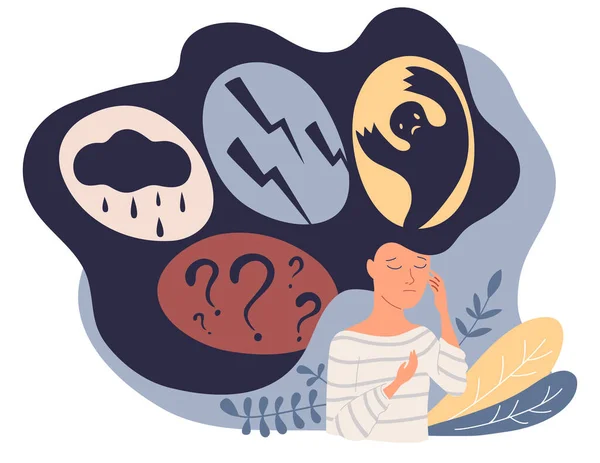PTSD – Post-Traumatic Stress Disorder

PTSD – Post-Traumatic Stress Disorder
Post-traumatic stress disorder (PTSD) is a mental health condition develops after experiencing or witnessing a traumatic incident. These incidents include military combat, sexual assault, natural disasters, accidents, or other life-threatening situations. People with this problem may experience a range of symptoms that can be severe and long-lasting. This disorder needs treatment and affects anyone, regardless of age, gender, or background, and it can develop immediately after a traumatic event or even years later.

Symptoms of PTSD
The symptoms of PTSD can be grouped into four main categories:
Intrusive Thoughts and Memories
This includes distressing and intrusive memories, flashbacks, and nightmares related to the traumatic event. These memories can be so vivid and intense that the person feels as though they are reliving the event.
Avoidance and Numbing
While this includes avoiding places, people, or activities that might trigger memories of the traumatic event. People with PTSD may also feel emotionally numb, have difficulty experiencing positive emotions, and feel disconnected from their loved ones.
Negative Thoughts and Feelings
Also, people having this disorder experience negative beliefs about oneself and others, feelings of guilt, shame, and fear. They may blame themselves for the traumatic event and feel like they could have prevented it, too. Added to that, they may have a negative outlook on the world and struggle to trust others.
Arousal and Reactivity
Finally, the affected people may be feeling on edge, easily startled, and have difficulty sleeping or concentrating. People with PTSD may also exhibit reckless or self-destructive behavior, such as using drugs or alcohol to numb their symptoms.
Treatment of PTSD
While PTSD can be a challenging condition to live with, there are effective treatments available. Typically, the treatment involves a combination of psychotherapy, medication, and lifestyle changes. Here are some common treatments for PTSD:
Cognitive Behavioral Therapy (CBT)
CBT is a type of talk therapy that helps people change negative thinking patterns and behaviors causing distress. In the case of PTSD, CBT may involve exposure therapy. In this therapy, a person gradually faces the traumatic event in a safe and supportive environment. By that, the affected person learns to manage the response to triggers.
Eye Movement Desensitization and Reprocessing (EMDR)
EMDR is a type of therapy that uses guided eye movements to help people process traumatic memories and emotions. This therapy helps people to desensitize traumatic memories and develop more adaptive coping mechanisms.
Medication
Antidepressants such as selective serotonin reuptake inhibitors (SSRIs) and other medications may be prescribed to help manage symptoms of depression, anxiety, and insomnia associated with PTSD.
Lifestyle changes
Living a healthy lifestyle can help manage symptoms of PTSD. Regular exercise, good sleep hygiene, and avoiding alcohol and drugs can all help reduce symptoms of PTSD.
Rapid Transformation Therapy – RTT to Treat PTSD
Rapid Transformation Therapy (RTT) is a therapeutic approach that can be used to treat PTSD. It works by identifying negative emotions and reprogramming them. In a typical RTT session, the therapist guide the client into a state of deep relaxation and use hypnotic regression to identify the root cause of the PTSD. Then, the therapist uses a combination of techniques to help the client reframe their negative emotions and memories, and replace them with positive, empowering ones. This includes visualization, positive affirmations, and other techniques to help the client develop a more positive outlook on their life.
It’s important to note that not everyone who experiences trauma will develop PTSD, and the symptoms can vary in severity and duration. By providing the help needed, people with this disorder can overcome their negative emotions and live a happier, more fulfilling life.
Contact Dr Carla to keep your mental health in check.

